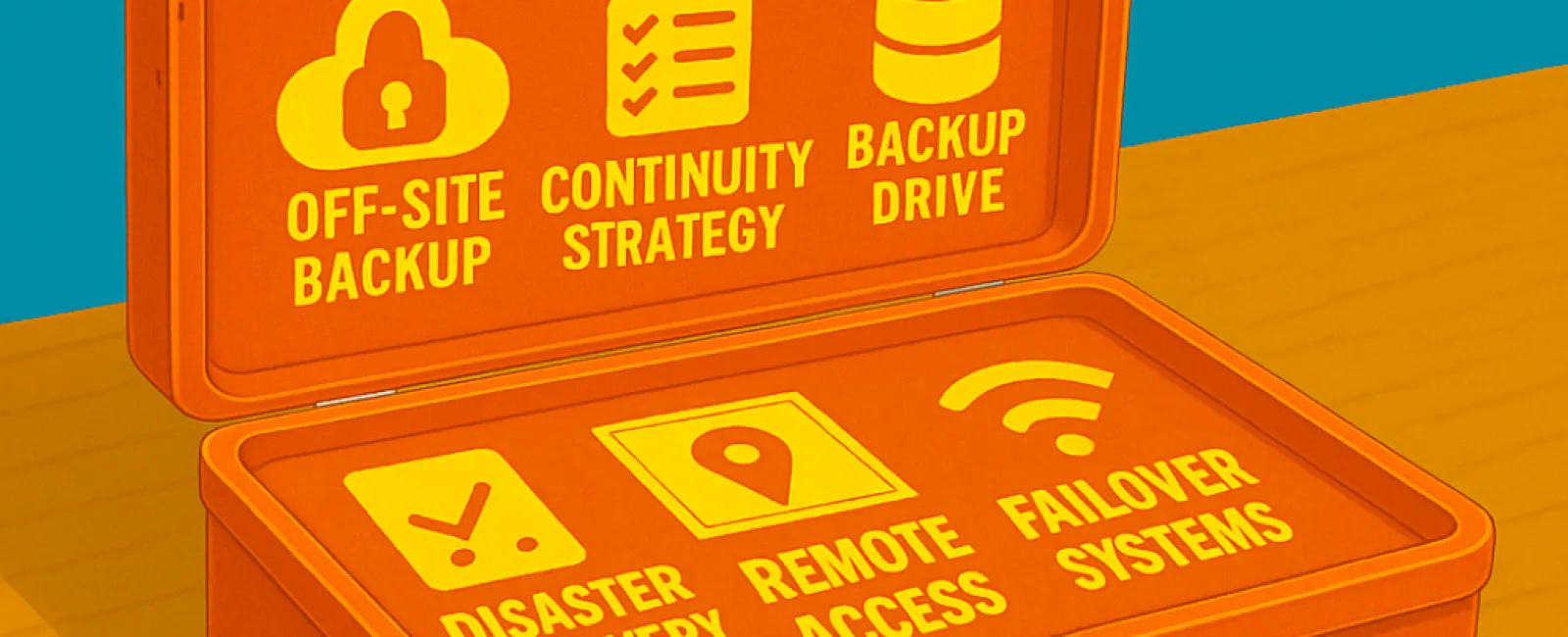July 28, 2025
Unexpected power failures, cyberattacks, hardware malfunctions, and natural disasters can strike without warning, causing severe disruption to small businesses. Many believe that simply having backups is sufficient, but restoring a file is vastly different from maintaining full operational capability. If your systems are inaccessible, remote work isn't supported, or communication with your team and clients breaks down, even brief interruptions can lead to prolonged setbacks. Your IT partner should not only provide backups but also develop a comprehensive strategy to ensure your business stays fully functional no matter the challenge.
Backups Alone Won't Protect Your Business - You Need a Continuity Strategy
Backups are crucial, but they represent just one piece of the puzzle. What truly safeguards your business is a robust business continuity plan — a forward-thinking approach designed to keep your operations running smoothly during and after any crisis.
When systems fail, files become unreachable, or your workplace is compromised, relying solely on local backups offers little relief. Without a well-defined plan to swiftly restore your operations, you expose your business to significant risks including lost revenue, damaged reputation, and regulatory non-compliance.
Understanding the Critical Difference: Backups vs. Business Continuity
Many companies make this common mistake:
● Backups allow you to recover data.
● Continuity ensures your business keeps operating regardless of disruptions.
A comprehensive continuity plan addresses essential questions such as:
● How quickly can we resume full operations?
● Where will our team work if the office is inaccessible?
● Which systems are absolutely critical to business functions?
● Who is responsible for initiating the recovery process?
It also incorporates vital elements such as:
● Encrypted, off-site, and immutable backup solutions
● Clearly prioritized recovery objectives (RTO/RPO)
● Preparedness for seamless remote work
● Redundant infrastructure and automatic failover systems
● Regularly scheduled disaster recovery drills
If your IT provider cannot confidently guide you through these components, you are not truly protected—you are merely fortunate until the next incident.
Could This Really Happen to Your Business?
This isn't fear-mongering; these are real-life events with tangible consequences. Recently:
● Florida hurricanes forced hundreds of businesses to halt operations, especially those without cloud-based access.
● North Carolina floods destroyed on-premises servers, wiping out months of critical records and invoices.
● California wildfires razed entire office buildings in the Pacific Palisades, many lacking off-site recovery plans.
● Numerous small businesses hit by ransomware discovered their backups were corrupted or never properly tested.
Disasters impact organizations of all sizes, including businesses just like yours every single day.
Essential Questions You Need to Ask Right Now
If disaster struck tomorrow, would your business continue operating?
Ask your IT provider:
● How quickly can we recover if ransomware attacks?
● Are our backups regularly tested, and which systems do they cover?
● What is the plan if a flood or fire makes our office unusable?
● Does our continuity plan comply with all relevant industry regulations?
● Can we continue serving clients if our team must work remotely?
If you're not completely confident in these answers, your business may already be vulnerable.
Disasters Are Inevitable. Downtime Doesn't Have To Be.
While you can't prevent every outage, storm, or cyberattack, you can control how your business responds.
A competent IT provider helps you recover.
A trusted IT partner ensures your business never misses a beat.
Ready to evaluate your business's preparedness?
Click Here or call us at 614-889-6555 to schedule your FREE Consult, and let's guarantee disasters never lead to downtime.




